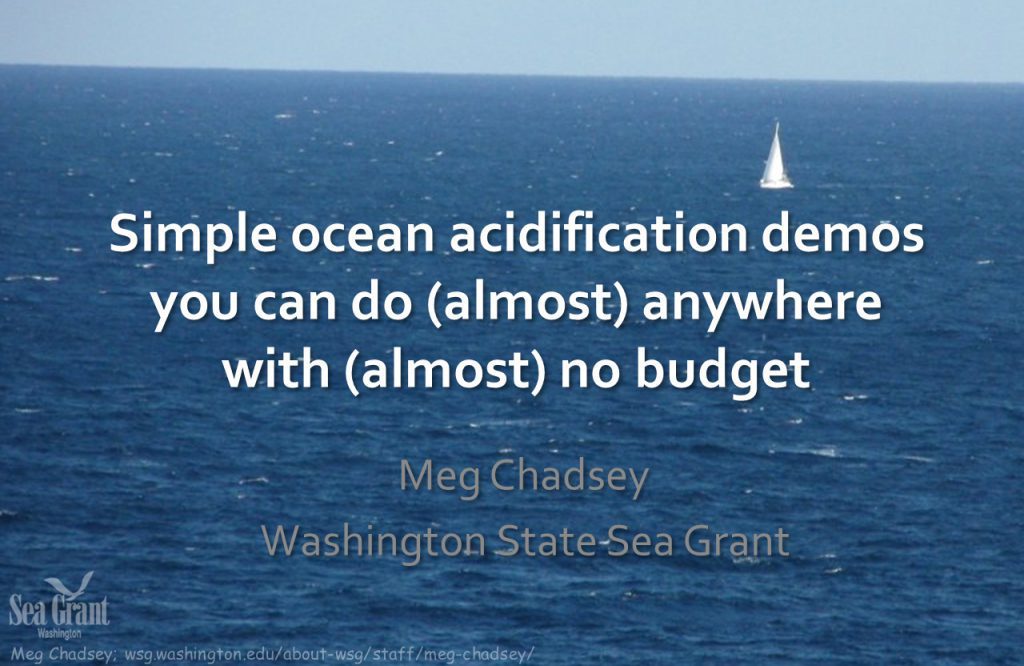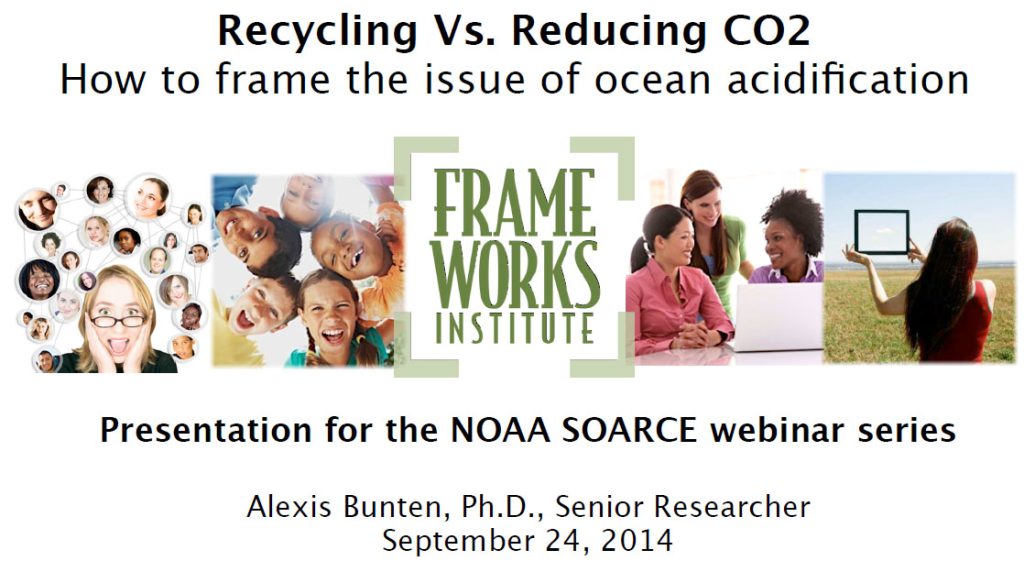Simple ocean acidification demos you can do (almost) anywhere with (almost) no budget
Presenter: Meg Chadsey, Washington State Sea Grant
Primary audience: Informal and formal educators
Date/time: Thursday May 28th, 2015, 3pm EDT (12pm PDT)
Simple ocean acidification demos you can do (almost) anywhere with (almost) no budget Read More »




